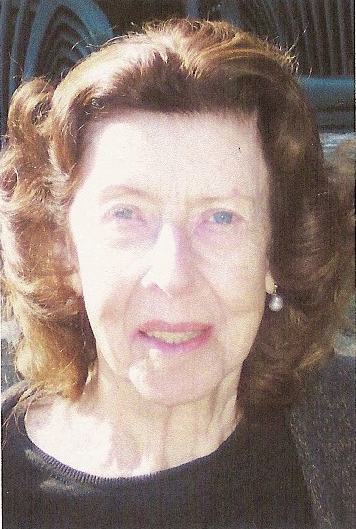 My father, Sir Keith Cantlie, served in the Indian Civil Service from 1910 till his retirement in 1947. So, in a way I consider myself daughter of Assam, a land of outstanding natural beauty with distant views of the snow and Himalayas.”
My father, Sir Keith Cantlie, served in the Indian Civil Service from 1910 till his retirement in 1947. So, in a way I consider myself daughter of Assam, a land of outstanding natural beauty with distant views of the snow and Himalayas.”
With her disarming smile. simple down-to-earth manner, the bespectacled Dr. Audrey Cantlie welcomed me with a big smile at her door at Oxford Street as if I was somebody of her own. She has an emotional bond for Assam and the Assamese people.
I still remember the day I met her in September 1998, at SOAS (School of Oriental and African Studies, London). I introduced myself as an Assamese. I could see the sparkle in her eyes. She asked me “How many Assamese people are in London? I will love to meet them.”
A few weeks after this meeting, we organized the 550th Sankar Jayanti at Wembley, when we invited her as our Chief Guest. The speech she delivered about Sankardev was very informative. Since then Dr. Cantlie has always shared every Assamese Community function in London. Her guidance and support is very valuable to me at my work in women-oriented matters.
From studying sociology at the London School of Economics to teaching at School of Oriental and African Studies at Oxford, she has kept in touch with her beautiful past as an Assamese. She wrote the acclaimed book “The Assamese”, dedicated to the memory of her father Sir Keith Cantlie, who served 40 years in the state of Assam. How beautifully she expressed the qualities of Assamese people in this book!
Call her a professor, a teacher, an academician, but for the Assamese society in London she is just our Cantlie Baidew!
Dr. Audrey Cantlie was born in Shillong in 1923. She spent six years in Jorhat where her father was the Deputy Commissioner. She considers herself a daughter of Assam.
After obtaining a degree in Sociology at the London School of Economics, she returned to Assam for fieldwork and carried out a study of a village near Jorhat, which was later, published under the title of “The Assamese”. It is perhaps the only intensive work done in the plains of Assam and Dr. Cantlie likes to think of it as a small contribution to understanding a unique way of life and, more particularly, the religion founded by Sankardev.
After working on the staff at the London School of Economics, she moved to the School of Oriental and African Studies where she still teaches part-time to the present day.
Her father Sir Keith Cantlie joined the I.C.S. in 1910 and served his whole working life in the province (as it was then called) of Assam until his retirement in 1947. His last appointment was as Chairman, Public Service Commission, Assam. He spent many years as Deputy Commissioner, Khasi and Jaintia Hills, and wrote a short monograph on Khasi Law, which is currently being re-printed for the second time. During the war he recruited a Khasi Porter Corps which he took up to Kohima when it was besieged by the Japanese. He was also a keen collector of butterflies of Eastern India.
T.T.S. Hayley, her husband, Thomas Hayley, was appointed to the I.C.S. during the Second World War. He stayed on after 1947 and was the first Deputy Commissioner of Sibsagar District after Independence. The Chief Minister of Assam, Bimala Prasad Chaliha appointed him as Secretary and Director of Rural Development, responsible for creating Panchayat Raj in villages. He continued in this post until his retirement in 1950. He later became a psychoanalyst.
During her current stay at Guwahati, we organized an interactive session with teachers, academicians, journalists and students at Sudmersen Hall, Cotton College on Wednesday 13 February, 2008 at 4:00 pm.
Pictures show Dr. Audrey Cantlie and the book she wrote “The Assamese”.
Rini Kakati, London
- Log in to post comments